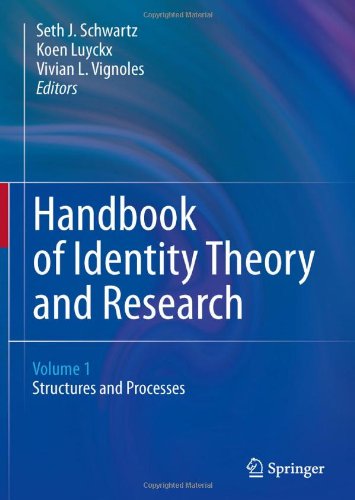

Most ebook files are in PDF format, so you can easily read them using various software such as Foxit Reader or directly on the Google Chrome browser.
Some ebook files are released by publishers in other formats such as .awz, .mobi, .epub, .fb2, etc. You may need to install specific software to read these formats on mobile/PC, such as Calibre.
Please read the tutorial at this link: https://ebookbell.com/faq
We offer FREE conversion to the popular formats you request; however, this may take some time. Therefore, right after payment, please email us, and we will try to provide the service as quickly as possible.
For some exceptional file formats or broken links (if any), please refrain from opening any disputes. Instead, email us first, and we will try to assist within a maximum of 6 hours.
EbookBell Team

5.0
30 reviewsIdentity is one of the most extensively studied constructs in the social sciences. Yet, despite the wealth of findings across many disciplines, identity researchers remain divided over such enduring fundamental questions as: What exactly is identity, and how do identity processes function? Do people have a single identity or multiple identities? Is identity individually or collectively oriented? Personally or socially constructed? Stable or constantly in flux? The HandbookofIdentityTheoryandResearch offers the rare opportunity to address the questions and reconcile these seeming contradictions, bringing unity and clarity to a diverse and fragmented literature.
This exhaustive reference work emphasizes the depth and complexity of identity processes and domains and presents perspectives from many different theoretical schools and empirical approaches. Contributing authors provide perspectives from psychology (e.g., narrative, social identity theory, neo-Eriksonian) and from other disciplines (e.g., sociology, political science, ethnic studies); and the editors highlight the links between chapters that provide complementary insights on related subjects.
In addition to covering identity processes and categories that are well-known to the field, the Handbook tackles many emerging issues, including:
The HandbookofIdentityTheoryandResearch lends itself to a wealth of uses by scholars, clinicians, and graduate students across many disciplines, including social, developmental, and child/school psychology; human development and family studies; sociology; cultural anthropology; gender, ethnic, and communication studies; education; and counseling.